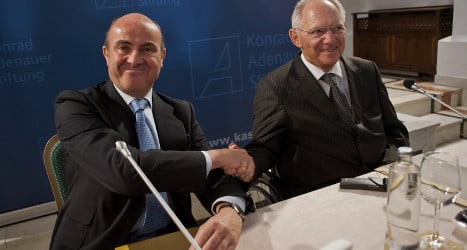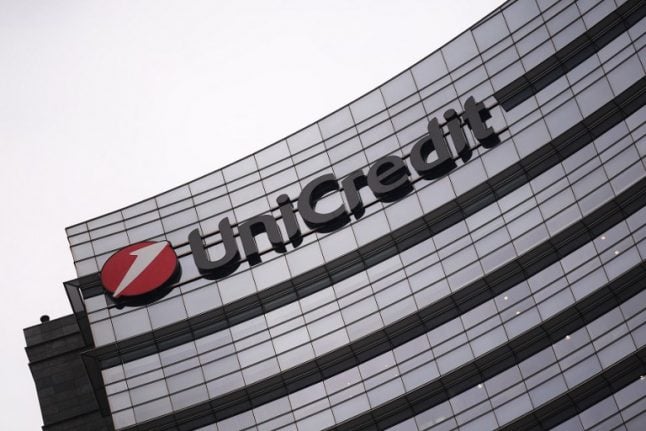"We have reached an agreement on… the possibility of finding ways to finance investment in small and medium Spanish enterprises that are competitive," Spanish Economy Minister Luis de Guindos said.
"Jobs are created by small- and medium-sized companies and that is where we have to act," he added, at a joint news conference with German Finance Minister Wolfgang Schaeuble in the southwestern Spanish city of Granada.
The German minister said the plan was a "pilot project" that could serve as an example for other nations and whose priority would be to fight unemployment, especially among the young.
The two ministers said each country had appointed an official who would be the country manager for the plan and who would work together to flesh out the details of the project by the end of May.
Schaeuble said the plan would not run "through the usual long journey through European institutions, it will be more immediate, with direct dialogue with banks."
"Both governments are going to try to ensure that this model is implemented as soon as possible and that the money reaches small and medium-sized companies as soon as possible," he added.
UniCredit chief economist Erik Nielsen felt the programme showed that "the German government (like some other governments) has lost faith in the (EU) Commission," which he suggested "is seen as not working properly for the eurozone."
Spain, the eurozone's fourth-largest economy, is struggling through a double-dip recession brought on by the collapse of a property boom in 2008.
The country's unemployment rate hit a record 27.16 percent in the first quarter and was 57.22 percent for those between the age of 16 and 24, the latest figures showed last week.
Spain had 239,688 fewer small and medium-sized businesses in March 2013 than during the same month in 2007, before the collapse of the property bubble which sent the economy into a tailspin, according to Spain's small business association CEPYME.
Small and medium-sized firms complain that they struggle to secure financing from banks, which have been saddled with bad loans since the property market collapsed.



 Please whitelist us to continue reading.
Please whitelist us to continue reading.
Member comments